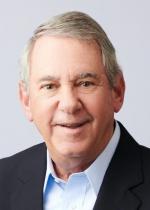SMART CHANNEL PROS invest considerable time into planning for the day they will sell their business. Not all, however, put the same amount of energy into figuring out what they will do next.
Former MSP owner Dave Sobel, host of The Business of Tech podcast and co-host of the Killing IT podcast, urges channel pros to ask themselves, What do you want your life to look like after exiting your business? For instance, he poses, “Do you want to do another [business]? Do you want to consult? Do you want to take a job? Do you want to travel the world? Do you want to spend time with your family?” If you haven’t answered those questions, he adds, “I would not be surprised at all if you’re lost.”
This self-reflection is even more important now, he says, as it’s no longer the norm to work in the same job for 35 or 40 years and then retire. “That means a lot more of this is on us to figure out,” Sobel notes.
Whether your next move is retirement or a new venture, here are some tips to avoid stress and feelings of loss once you’ve exited your business.
When Exiting Isn’t “Retirement”
At age 46, Sobel says he’s been actively planning for retirement since the sale of his MSP business, and thinking about it in general, but wasn’t ready to “retire” in the traditional sense. “When I sold my MSP I was very happy with the transaction––and it’s great retirement money,” explains Sobel.
For now, he’s enjoying his work as a host and says the podcasting business “both generates revenue and it has an asset value itself, and I think about it in those terms.” He also contemplates what he will do with that asset, and when, to continue powering his life plan and what comes next.
“For me, retirement is about: I don’t need the work for the money to sustain my life; I need the work because it’s what engages my brain,” he explains. “I want to do something, and produce something, and be engaged.”
Define Your Sense of Purpose
If you do plan to retire, the key to a successful transition “is really this whole topic of purpose,” says Fritz Gilbert, founder of the The Retirement Manifesto Blog and author of Keys to a Successful Retirement: Staying Happy, Active, and Productive in Your Retired Years. “Recognize you’re going to lose your work identity,” he stresses. “What are you going to replace it with?”
A former executive in the aluminum industry, Gilbert retired at age 55 and moved to a cabin in the mountains outside of Atlanta with his wife. The couple spent a number of years planning for this transition, including a 10-day “dry run” living at the cabin.
Rather than an action-packed itinerary full of hikes and bicycle riding, Gilbert used those 10 days to disconnect from work and reflect on how he wanted to spend his time when he retired. “I had a little bit of an interest in writing, I liked podcasts, I liked personal finance,” he explains. And so he started writing.
Gilbert urges would-be retirees to identify interests that they’d like to pursue. “Then go out and try them,” he says. “You might throw 10 things against the wall and maybe one or two will stick, but if you find one or two that are really good, that’s a huge leg up.”
Create a “Business Plan” for Your Life
Hal Shelton, a Washington, D.C.-based mentor at SCORE Association, a national organization that provides mentoring and education to small and midsize business owners, advises would-be retirees to draw up an informal “personal business plan” to work through how they will be spending their time. “The format’s not important, but it’s envisioning what post your current role would be,” explains Shelton, who is also an investor in early-stage tech companies, and author of The Secrets to Writing a Successful Business Plan.
The plan could identify “work-related” goals, such as joining boards of directors, teaching, or writing a book, or activities such as volunteering, taking up a new hobby, or re-exploring an old one, notes Shelton.
Rex Frank encourages channel pros to look to professionals for help with creating a plan for retirement, just as they do when they are preparing to sell their business. “Everybody thinks about their lawyer and their CPA, but I don’t think people find somebody to be a life coach, or mentor, or spiritual adviser––they’re not reaching out for that,” says Frank, vice president of academy at distributor Pax8, which recently acquired Frank’s company Sea Level Operations, an education and coaching firm for IT service providers. And yet, he adds, it’s advisers like these who can help would-be retirees define what fulfillment means to them.
Build a New Social Life
While they may have friends outside of work, channel pros spend the bulk of their days interacting with employees, vendors, and clients. You may promise to remain in touch with these people after you sell the business, but in reality that’s unlikely, according to Gilbert.
“I would encourage people to be intentional––starting maybe three years before retirement––to start getting engaged in things outside of your work environment with people that are totally unconnected to your business environment,” Gilbert advises. Getting involved in volunteering, or consulting your local Meetup dedicated to an activity of interest, are a couple of ways to start forming new friendships.
Plan With Your Spouse
If you’re married or living with a longtime companion, retirement planning should be a team effort. Gilbert notes that one of the most important discussion topics should focus on time. Whether both spouses work together, work separately, or one works and one stays home, they likely don’t spend as much time together as they will in retirement. This, he says, may take some getting used to.
It’s equally important to discuss how much time each spouse will dedicate to their own activities. In his case, Gilbert describes this as dividing up “we time,” “he time,” and “she time.” Having this conversation in advance sets expectations, and helps to prevent friction when both spouses are actually retired.
For Gilbert, retirement is a starting line––not a finish line. The same can be said for starting a new business or venture after selling your company. “It’s a brand-new beginning––you can do anything you want to do,” he says. “What an incredible opportunity in life.”
Image: iStock Photo
















